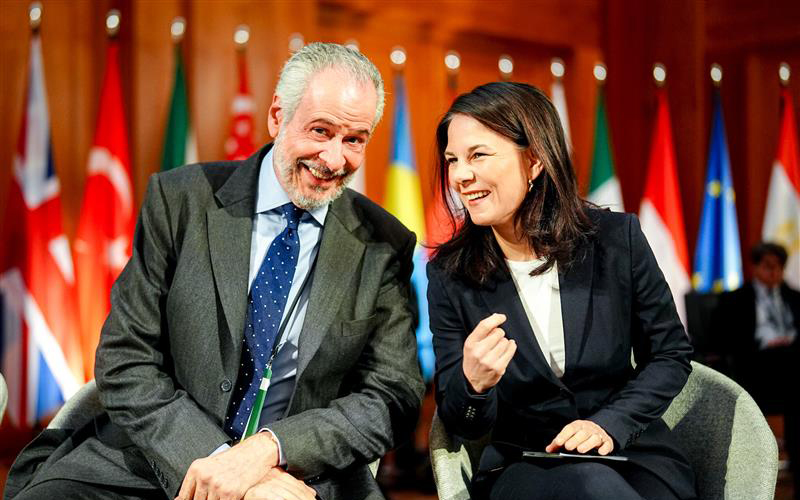Transport users in Berlin are facing strike disruption on buses, trams and U-Bahns until Friday morning. How will Verdi’s dispute with BVG progress once services are back up and running?
In the midst of a two-day warning strike that has brought much of Berlin’s public transport to a halt, there appears to be a glimmer of hope that weeks of chaos could soon be at an end.
On Thursday afternoon, transport operator BVG and services union Verdi announced that they had agreed to enter into a formal mediation, marking a turning point in their ongoing wage dispute.
At a press conference held in Berlin, both sides named their chosen mediators: SPD politician and former Brandenburg state premier Matthias Platzeck will represent BVG, while Left Party politician and Bundestag vice president Bodo Ramelow will mediate on behalf of Verdi.
The mediation talks will begin on Friday and are expected to conclude by April 10th. During this period, the so-called “peace obligation” clause means no further strikes can take place, giving Berliners a break from the recent wave of disruptions.
Nevertheless, Verdi’s latest 48-hour transport strike will still continue as planned until 3am on Friday morning. During this time, bus, tram, and U-Bahn services will remain suspended across the city.
READ ALSO: How Berlin’s two-day BVG strike will impact passengers
How does mediation work?
Mediation, or Schlichtung in German, is a formal negotiation process led by independent mediators. It is usually seen as a last resort after collective bargaining between unions and employers has failed.
Under German trade law, each side is allowed to appoint a mediator and four delegates to represent their interests. The goal is to reach a compromise that can be recommended to both sides for final approval – though no side is obliged to accept it.
Advertisement
In parallel with the mediation decision, Verdi has launched a ballot among union members to approve indefinite strikes. This will run until April 4th and requires two thirds of members to reject BVG’s latest offer for the strikes to go forward.
However, due to the agreed-upon mediation period, no further industrial action can be called until at least April 10th, regardless of the ballot’s outcome.
Buses sit in a bus depot in Siegfriedstraße, Berlin, at the start of a two-day BVG warning strike. Photo: picture alliance/dpa | Michael Ukas
What are the two sides fighting about?
Since the start of the year, Verdi and BVG have been locked in tough negotiations over the future pay and conditions for some 16,500 transport workers in Berlin.
Citing the spike in the cost of the living, the union is demanding a monthly increase of €750, bonuses for driving and other unsociable shifts, and a 13th-month salary as a Christmas bonus.
BVG has pushed back, citing budgetary constraints, but recently improved its offer to a 17.2 percent wage increase for drivers. However, Verdi has described this offer as “far removed” from its demands.
READ ALSO: Where rail passengers can expect disruptions in Berlin and Brandenburg in 2025
With the union taking an uncompromising stance, it remains unclear whether the independent mediators will be able to thrash out an agreement that can satisfy both parties.
Advertisement
However, BVG has welcomed the development, describing the arbitration as “good news for our employees and all Berliners.”
Speaking at the press conference on Thursday, Verdi negotiator Jeremy Arndt also struck an optimistic tone about the forthcoming talks.
“It is good that we are now trying to develop a common perspective on what the work of BVG employees should be worth today,” he told assembled reporters.




















Discussion about this post